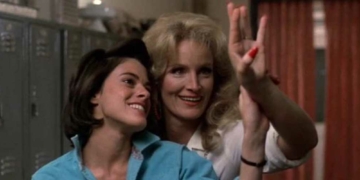Few political thinkers can claim the foresight of Janice Raymond. Back in the 1970s, decades before transgenderism entered the mainstream, Raymond predicted the widespread medicalisation of gender identity. She was also an early critic of commercial surrogacy, anticipating that poor women would be at risk of reproductive trafficking to meet demand created by the wealthy. And yet, when I ask her how it feels to be part of a feminist vanguard, Raymond’s response is modest.
“I never thought of myself as part of a vanguard, feminist or otherwise,” she says. “In the aftermath of writing The Transsexual Empire, there was no strong opposition to what I had written and, in fact, the book was championed in one of the key U.S. media.”
Published in 1979, The Transsexual Empire was built upon Raymond’s doctoral thesis about gender identity reinforcing traditional sex stereotypes. More than 40 years later, the book is celebrated as part of the radical feminist canon. But it has also faced fierce criticism from transgender commentators. Carol Riddell claims The Transsexual Empire “did more to justify and perpetuate [anti-transsexual prejudice] than perhaps any other book ever written.”
Other feminists, keen to avoid being tarred by the same brush, condemned Raymond’s work. “If a vanguard means precursor,” she reflects, “then vanguards – at some point – are lonely positions. Especially if support is missing from those you might expect it to come from.”
Raymond has faced not only efforts to sabotage her career as an academic, but threats of extreme violence. Yet she was undeterred. And now Raymond is back with Doublethink: A Feminist Challenge to Transgenderism.
Only her busy schedule has kept Raymond from returning to the thorny subject of gender sooner. “As a university professor for 28 years and then becoming a co-director of the international Coalition Against Trafficking in Women (CATW) for 13 years, I had almost no time to write a book,” she says. “Other than a new introduction to The Transssexual Empire, which was reprinted in 1994.”
But Raymond remained conscious of new developments, the shift from ‘transsexual’ to ‘transgender’ framing. “Friends and colleagues would send me relevant articles about the ‘new’ phenomenon of transgender, and especially about the rise in the numbers of girls who were undergoing hormones and surgery. As I became aware of the ruthless currents of trans self-declaration and the transgender expansion into medicine, education and legislation, I knew that I had to write about it.”
Lesbian feminist principles are at the heart of Raymond’s work, which is never clearer than when she considers the lives of young lesbians who detransition. “Many young women tell older lesbians that they didn’t realise they could be gender non-compliant lesbians rather than transition,” she says. As a solution to the absence of positive lesbian role models in young women’s lives, Raymond believes that we should “create as many intergenerational gatherings as possible.”
Lesbian feminist principles are at the heart of Raymond’s work, which is never clearer than when she considers the lives of young lesbians who detransition.
Raymond is at pains to highlight existing work to bridge the generational divide between lesbians. Through lesbian activist’s work with young women, Raymond has grown conscious of how influential social media platforms such as TikTok and Tumblr are in young women’s lives. And she calls on women to “intentionally post lesbian-positive messages.” There’s no doubt in Raymond’s mind that this is an effective strategy. “For example,” she tells me, “one lesbian feminist has 75,000+ followers and 1.3 million ‘likes’ for her TikTok posts.”
Raymond’s path to lesbian feminism surprises me as much as our shared taste in TikToks. An ex-Catholic myself, I had assumed Raymond left the Sisters of Mercy convent to become a lesbian feminist. But she’s quick to correct me on that front. “I didn’t leave the community to embrace lesbian feminism,” says Raymond. “I already was a lesbian feminist and – in contrast to the negative stereotypes of convent living – I lived with women who shared particular friendships with women, a common idealism, and a respect for women’s intelligence.”
Her clash with the church was down to its misogyny, “particularly its position on abortion.” During the early ‘70s Raymond testified at multiple state hearings on Roe v. Wade, taking a vocal stand against the Church’s position. “My testimony, of course, went into the major newspapers. And there were attempts to silence me. That was the push I needed to disassociate.”
Both the church and transgender rights activists have worked to silence Raymond – a fact that is not lost on her. Doublethink’s most blistering passages detail recent efforts to censor women’s voices, and the accompanying violent misogyny. Raymond intends her latest offering as an intervention.
“I want it to be a wakeup call,” she says. “I want Doublethink to help make us aware of a runaway ideology of transgenderism and its costs, among them what is at stake when males are allowed to compete in female sports and when parents are not aware of school curricula that confuse sex with gender and that can facilitate a child’s hormone treatment without parental consent. I want Doublethink to be read by lesbians and feminists, but also by the general public.”
Doublethink: A Feminist Challenge to Transgenderism is now available from Spinifex Press and all good bookstores.
Claire Heuchan is an author, essayist, and Black radical feminist. She writes the award-winning blog, Sister Outrider.























Comments
No comments yet, be the first to leave a comment.